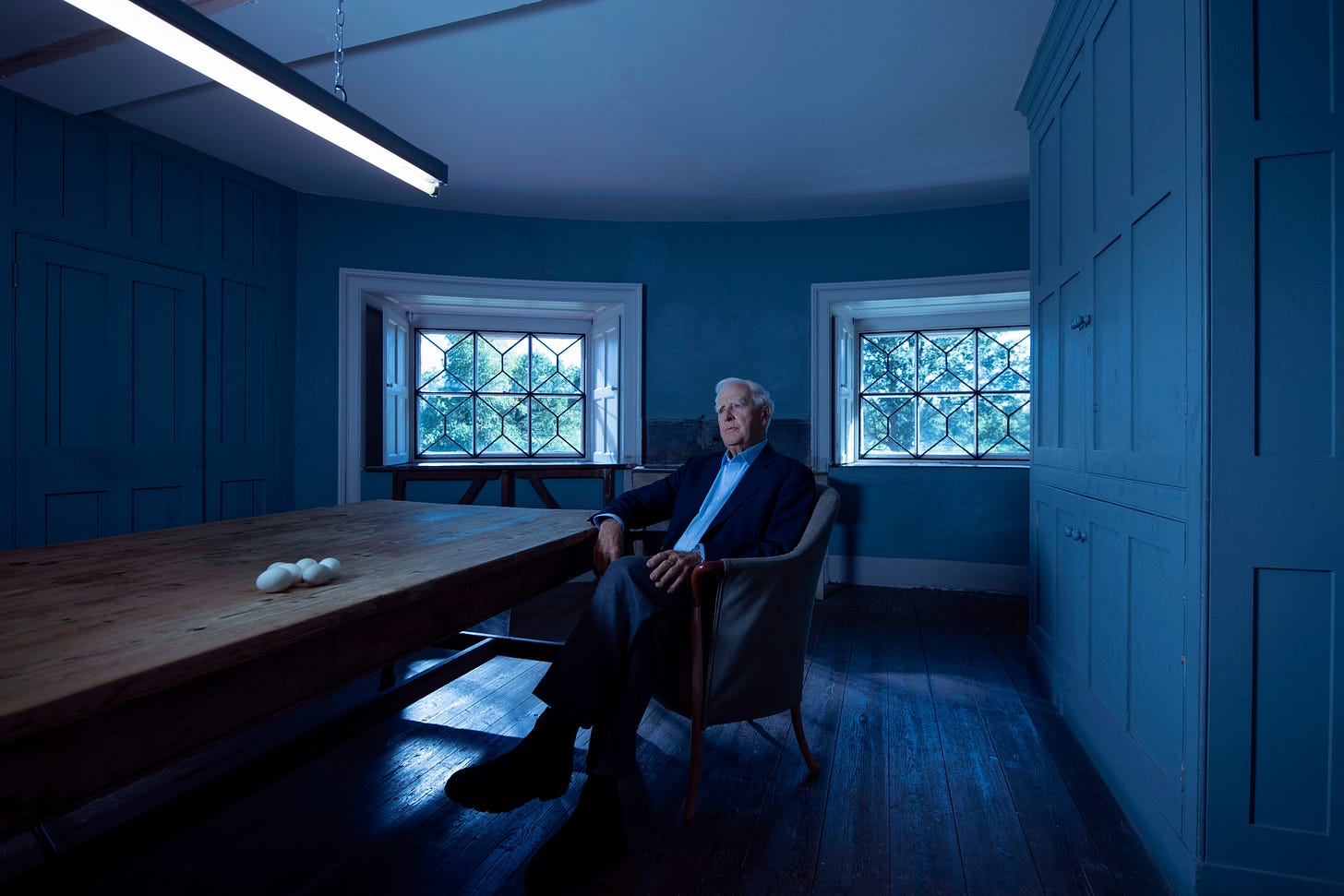Less a last will and testament than a mischievously mutual final troll, Errol Morris’s documentary The Pigeon Tunnel sees both its director and its subject, the late spy turned novelist John le Carré (né David Cornwell), engage in a circuitous dialogue, shot over four days near the end of 2019, that’s as charming and playful as it is oblique and ominous.
Contradictions abound, beginning with the film’s title visual, which is taken from le Carré’s 2016 memoir of the same name. It refers to a hotel in the Mediterranean that a young le Carré would visit with his father Ronnie, a career swindler. Pigeons were bred on the roof, and at certain points of the day the birds were forced to fly through a tunnel where they would emerge over the ocean and be shot at from below by wealthy clientele. Those that survived, rather than break for freedom, would instead return to their cages on the roof.
It’s a potent metaphor for the traps we set for ourselves, the often self-deluding “bubbles” as le Carré himself says, within with each of us lives — prisons shaped by the examples of family, friends, and country. In le Carré’s case, the dual sway of his con-artist dad and a British Empire presenting itself, during the Cold War, with a deceptive, disingenuous brawn, effectively created an emotional split. He could play the role of the Oxford-educated, rigorously patriotic member of the upper classes, while simultaneously acting duplicitous to those in his path.


